Flavor characteristics of Katim varieties of small Coffee from single producing area in Yunnan Story of Starbucks Yunnan Coffee beans

Professional coffee knowledge exchange more coffee bean information please follow the coffee workshop (Wechat official account cafe_style)
In recent years, Yunnan coffee beans often appear in the boutique coffee market, and the development of Yunnan coffee is not very long, so Qianjie Coffee thinks it has unlimited potential. so Qianjie Coffee also has a manor specializing in growing Yunnan coffee beans at the junction of Yunnan and Myanmar, so the next article Qianjie Coffee will talk about the characteristics of Yunnan Coffee.
Planting conditions of Coffee in Yunnan, China
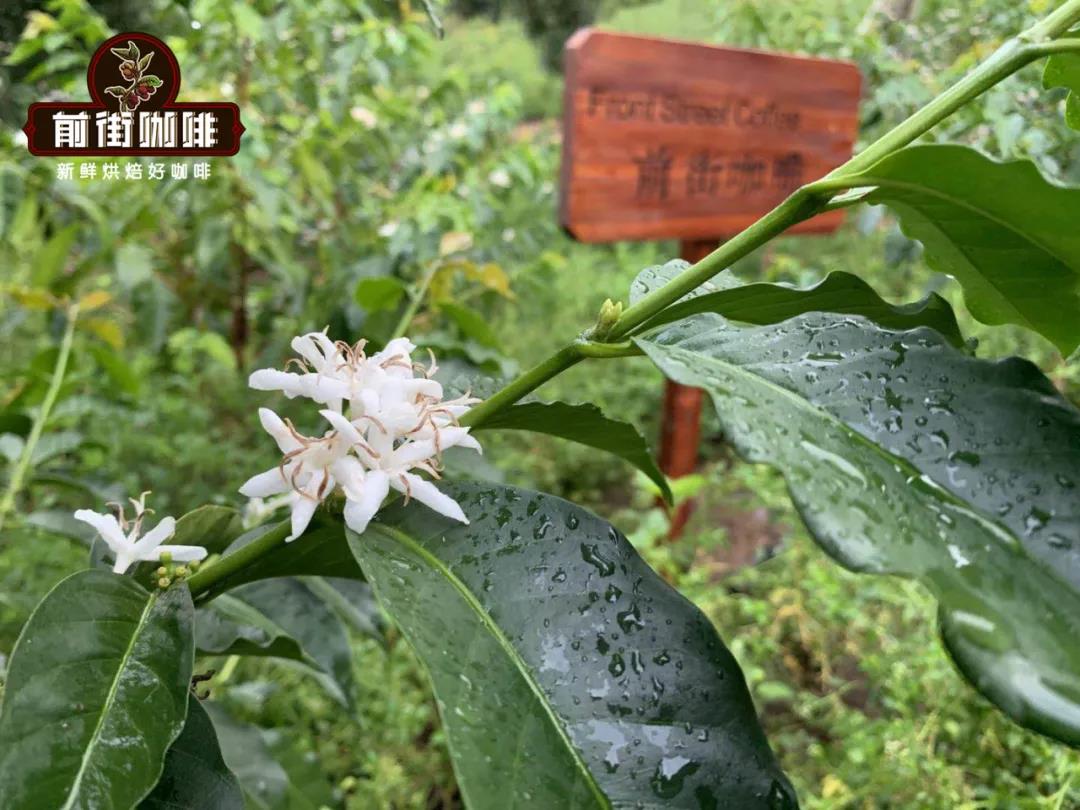
Yunnan is located in southwest China, and the Tropic of Cancer runs through southern Yunnan, which belongs to the mountainous plateau topography, in which the middle altitude area of 1000-3500m accounts for nearly 90% of the province's land area. Yunnan's climate belongs to the subtropical plateau monsoon type, with a large daily temperature difference and abundant rainfall, just like Qianjie Coffee. The growth environment of Arabica coffee needs to be in high altitude areas. The temperature and precipitation must be suitable to grow high-quality coffee fruit.
Today, the vast majority of coffee in China comes from Yunnan, which accounts for 98% of the country's coffee, which basically represents China's coffee growing industry.
Yunnan coffee producing area
The main planting areas of Yunnan small-grain coffee are in the south and west, among which Pool, Baoshan, Dehong and Lincang are more famous. Yunnan coffee grown in Qianjie Coffee Manor is from Baoshan, Yunnan Province. Qianjie coffee thinks that the coffee beans produced here are strong but not bitter, fragrant but not strong, and have regional characteristics. Next, Qianjie will briefly introduce the characteristics of Yunnan coffee producing areas.
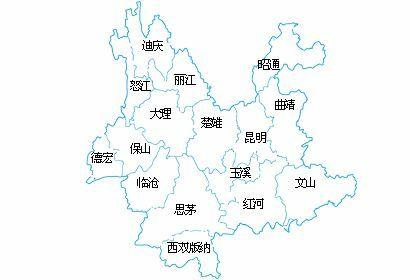
Dehong: it has the laudatory name of "hometown of Chinese coffee". The coffee planting in Dehong Prefecture is above 1000 meters above sea level, of which 30, 000 mu are planted in the mountains above 1600 meters above sea level. in addition, the coffee grown in Dehong Prefecture mainly uses organic fertilizers and organic pesticides, resulting in high quality coffee. it is one of the rare high-quality coffee producing areas in the world.
Baoshan: the cultivation of coffee in Baoshan began in the mid-1950s, and the first coffee seedling was introduced by the late patriotic overseas Chinese Mr. Liang Jinshan in Southeast Asia. In recent years, with the expansion of international trade, Lujiangba's small-grain coffee is more famous. Merchants in Europe, the United States, Egypt, Hong Kong and Macao, especially in Britain, the United States, Egypt, Hong Kong and Macao all regard it as top-grade coffee, and their products are in short supply. In December 2010, after being examined and approved by China's General Administration of quality Supervision, Inspection and Quarantine, it was decided to implement national geographical indication product protection for "Baoshan small Coffee".
Lincang: because of its unique geographical location and climatic conditions, Lincang has become the focus of many coffee enterprises, and has successively established 200 mu and 100 mu of high-quality coffee breeding bases in Mengding Town and Lincang Happiness Farm in Gengma Autonomous County of the city. coffee is planted in Gengma, Zhenkang, Yun County, Cangyuan, Yongde and other places.
Pu'er: tea village Pu'er has cultivated coffee for 150 years. At the end of 1990s, Pu'er City began to cultivate coffee as a dominant backbone industry to adjust the industrial structure and increase farmers' income.
History of Coffee cultivation in Yunnan
As the article in Qianjie said, the history of Yunnan coffee developing boutique coffee and being recognized by coffee fans all over the world is not long, but according to Qianjie, the history of growing coffee in Yunnan is very long, mainly divided into four sections. Next, let's talk about the planting history of Yunnan coffee beans.
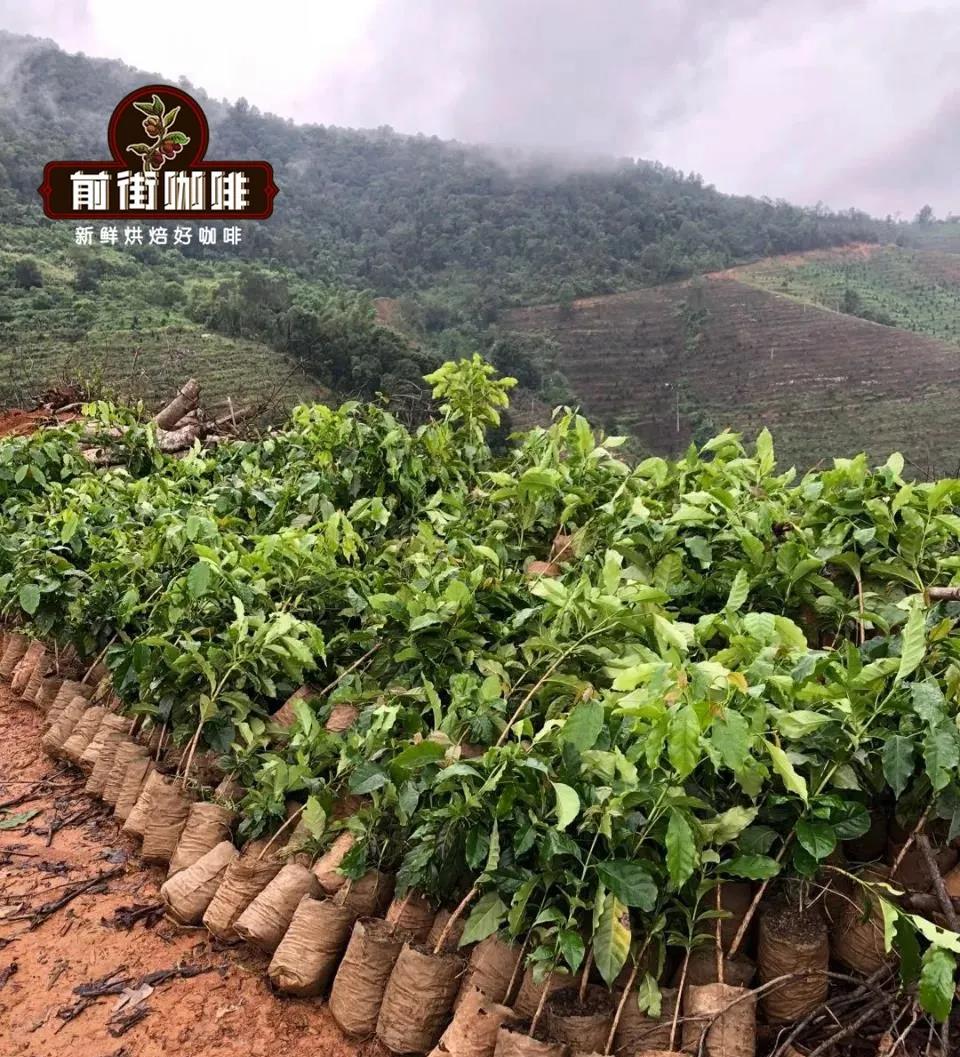
The first stage: in the 1880s, the Qing government was forced to sign a treaty with France to end the Sino-French war and opened Mengzi (Mengzi County, Honghe Prefecture) as a trade port. In 1889, Mengzi customs switch opened the prelude to the exchange between the southwest border and the outside world, and foreign businessmen gathered and foreign firms came one after another.
The second stage: in 1902, a French missionary named Tian Deneng brought coffee from Vietnam to grow coffee in a mountain village called Zhu Kula in Binchuan County, Dali, Yunnan Province. Today, the offspring of that batch of coffee are still alive.
The third stage: in 1952, experts from Yunnan Academy of Agricultural Sciences distributed 80kg coffee seeds to farmers in Lujiangba, Baoshan, and then guided planting on a large scale a few years later, which led to the coffee trees swaying along the Yunnan-Burma Road. Coffee cultivation in Yunnan has developed rapidly due to the huge demand for supply from the Soviet Union.
The fourth stage: in 1988, Nestl é set up a joint venture in China and began to support the development of the local coffee industry in Yunnan by starting a coffee planting project. Yunnan coffee rose again. Since 1992, Nestl é has established the Coffee Agriculture Department to guide and study the improvement and cultivation of coffee in Yunnan, and to buy coffee at the price of the spot market in the United States. Up to now, not only coffee giants such as Nestl é, Maxwell, Kraft and Starbucks are engaged in coffee business in Yunnan, local coffee enterprises are also gradually growing.
It is precisely after the above four stages that Yunnan began to study coffee cultivation, and now coffee farmers in Yunnan mainly grow small grain clock coffee, so Yunnan coffee is also known as Yunnan small grain coffee. Next, Qianjie Coffee will come to popularize the coffee varieties currently grown in Yunnan.
Yunnan coffee bean varieties
At present, Katim coffee beans are the most widely grown in Yunnan, but there are also a small amount of iron pickup coffee beans and bourbon coffee beans in Baoshan area. Although they all belong to Arabica species on a large scale, these varieties are very different in nature.
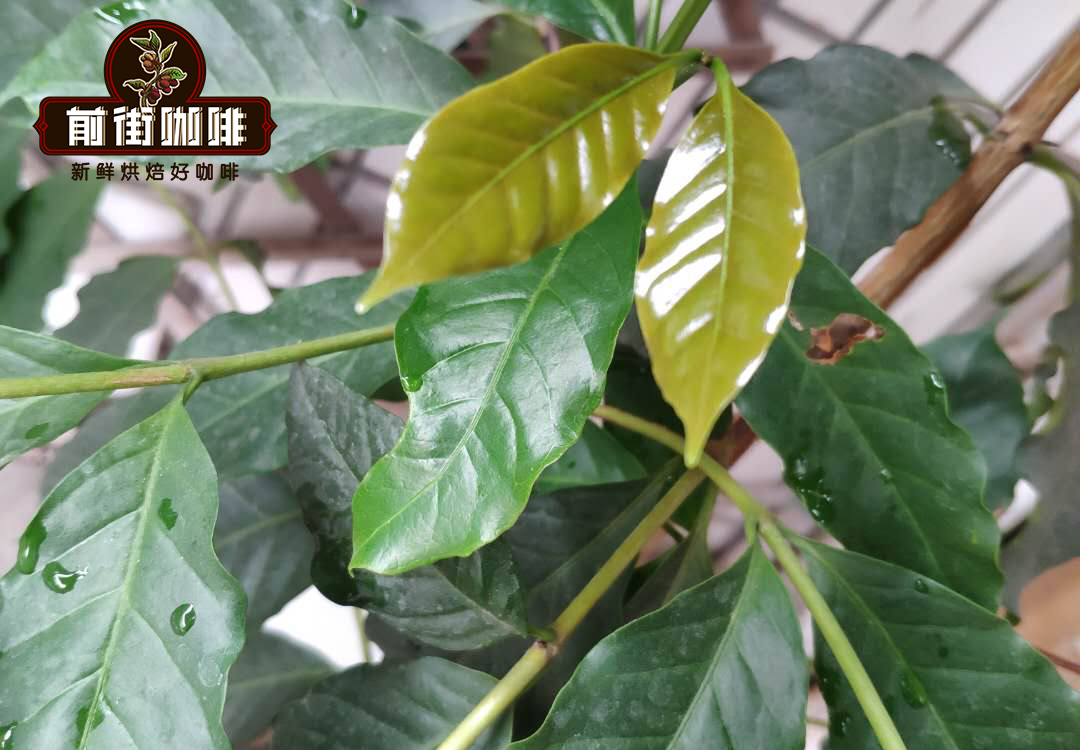
Iron pickup
Iron pickup is the oldest native variety of Arabica in the coffee market, and almost all of the coffee varieties to which Arabica belongs are derived from iron pickup. Iron pickup has an elegant flavor, but its physique is weak, its disease resistance is low, and it is easy to be infected with leaf rust. Therefore, the output of coffee beans is low, and there is no way to achieve economic benefits. In recent years, iron cards in Central and South America have been gradually replaced by Kaddura and Kaduai. So the figure of the iron pickup is becoming more and more rare. Although the flavor of the iron pickup is elegant, it is not as popular as bourbon.
On the other hand, Qianjie Coffee Manor mainly grows the coffee trees of the iron pickup varieties in Yunnan, because the iron pickup coffee has its unique quiet and clean flavor, as well as balanced features, and its taste is high, so although it is not easy to grow the coffee trees of the iron card varieties, Qianjie Coffee wants the Yunnan coffee tasted by coffee fans to show the best flavor.
Bourbon
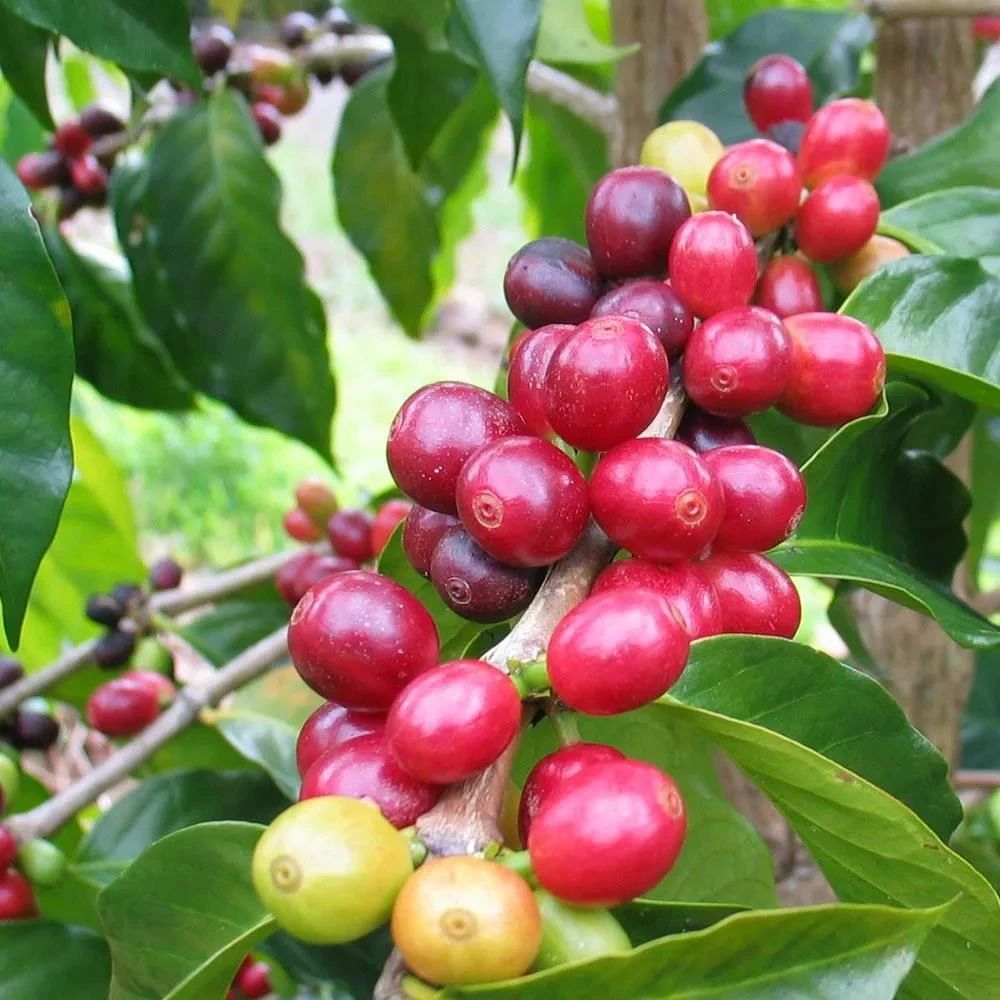
It is the second species caused by the mutation of the iron pickup, and it belongs to the oldest existing variety of coffee, and the green fruit will appear bright red when it is ripe. Compared with the tin card species, the bourbon species has wider leaves and denser growth. although the seed setting is higher than the tin card, the harvest time is also 2 years, which is also a variety with less yield, but it has a high-quality taste, like the sour taste of red wine, and the aftertaste is sweet.
Katim coffee variety
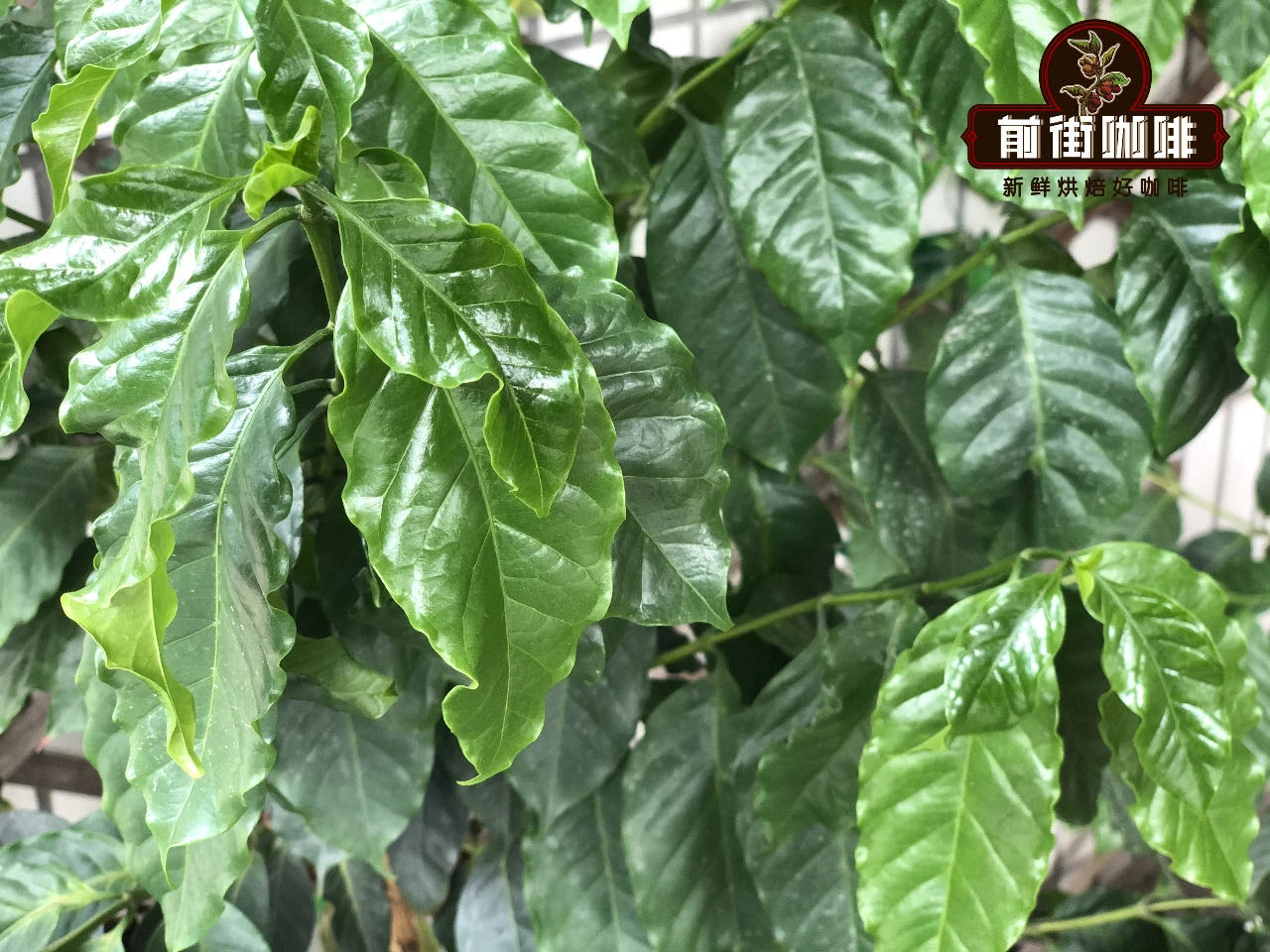
Katim is a combination of Arabica and Robusta, which has good resistance to leaf rust and rich oil, high yield and easy to grow, so after crossing with Arabica, Katim has 25% of the Robusta gene, which improves resistance to leaf rust and retains rich oil. at the same time, it also has the rich taste of some tin card original species.
Yunnan coffee treatment method
According to Qianjie, up to now, Yunnan coffee beans have been treated by many methods, but Yunnan coffee beans produced by Qianjie coffee are now treated with water washing, because the water washing method can best reflect the most primitive flavor of a coffee bean. it can also make the flavor of coffee beans cleaner and brighter and reduce miscellaneous flavor, so Qianjie coffee uses water washing method to deal with coffee beans. The aim is to make coffee fans in Laiqian Street Coffee Shop drink the most authentic and primitive flavor of Yunnan coffee beans.
Washing treatment process
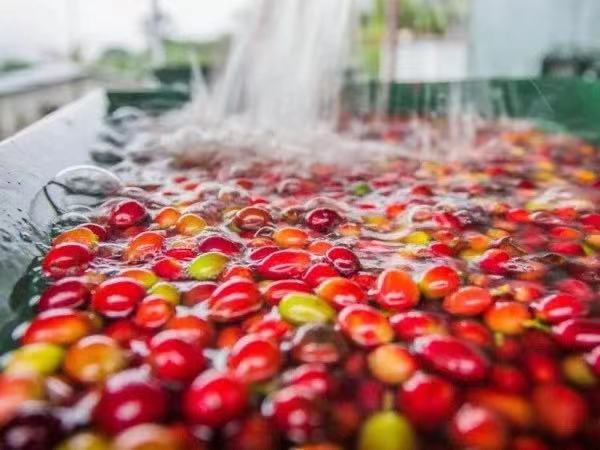
1. First of all, coffee farmers will pour all the harvested coffee fruit into the water, so that the bad and defective coffee beans will surface and sink to the bottom of the water is the quality of coffee fruit, and this operation also greatly reduces the time wasted by picking one by one.
two。 Put the screened coffee fruit into a peeling machine to remove the skin and flesh, and after removing these coffee fruits, there will still be a layer of pectin on the surface of the coffee fruit, so wash away the adhesive on the surface of the coffee fruit with a lot of water.
3. The next step is to use fermentation to completely remove the pectin, which takes about 18 hours, but after the fermentation is completed, the fermentation bacteria adhere to the surface of the coffee fruit, so it needs to be washed with a lot of water again, like this step. Getting 1 kilogram of coffee beans requires 40 to 50 kilograms of water, which Qianjie thinks is a very large number. This is why water washing cannot be adopted in dry countries.
4. Washed coffee beans can be dried, some areas will be directly taken outside to dry, and some more developed producing areas, will be sent to the treatment plant to use machine drying, so that the water content of coffee is as low as 11%.
5. Finally, the dried coffee beans are stored and packaged for sale and export.
Next, Qianjie Coffee will introduce Qianjie Coffee to all coffee fans in Yunnan at present.
Qianjie coffee Yunnan Huaguoshan coffee beans
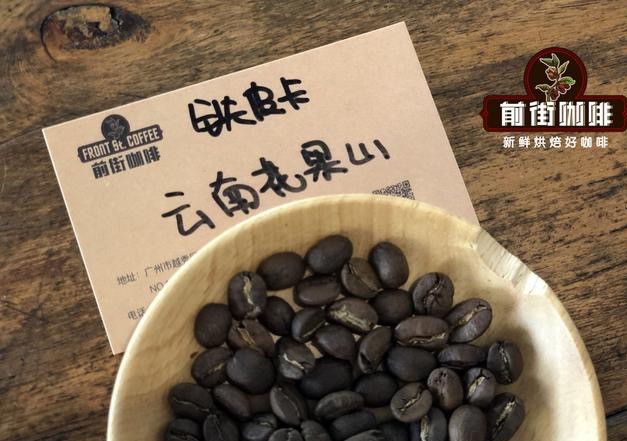
Country: China
Producing area: Baoshan, Yunnan
Altitude: 1450-1550m
Variety: iron pickup
Treatment: washing treatment
Flavor: citrus, nuts, plums, melon and fruit, brown sugar, black tea
Qianjie Coffee Yunnan small Coffee beans

Country: China
Producing area: Baoshan, Yunnan
Altitude: 1200m
Variety: Katim
Treatment: washing treatment
Flavor: herbs, nutty, chocolate, caramel
Qianjie coffee will be roasted and brewed before each new coffee bean is put on the shelf, so as to select the best flavor curve, which is convenient for coffee fans who come to Qianjie to taste in the future. next, Qianjie coffee will share the roasting and brewing data of Qianjie coffee on these two Yunnan coffee beans.
Suggestion on roasting coffee in Yunnan Huaguoshan, Qianjie
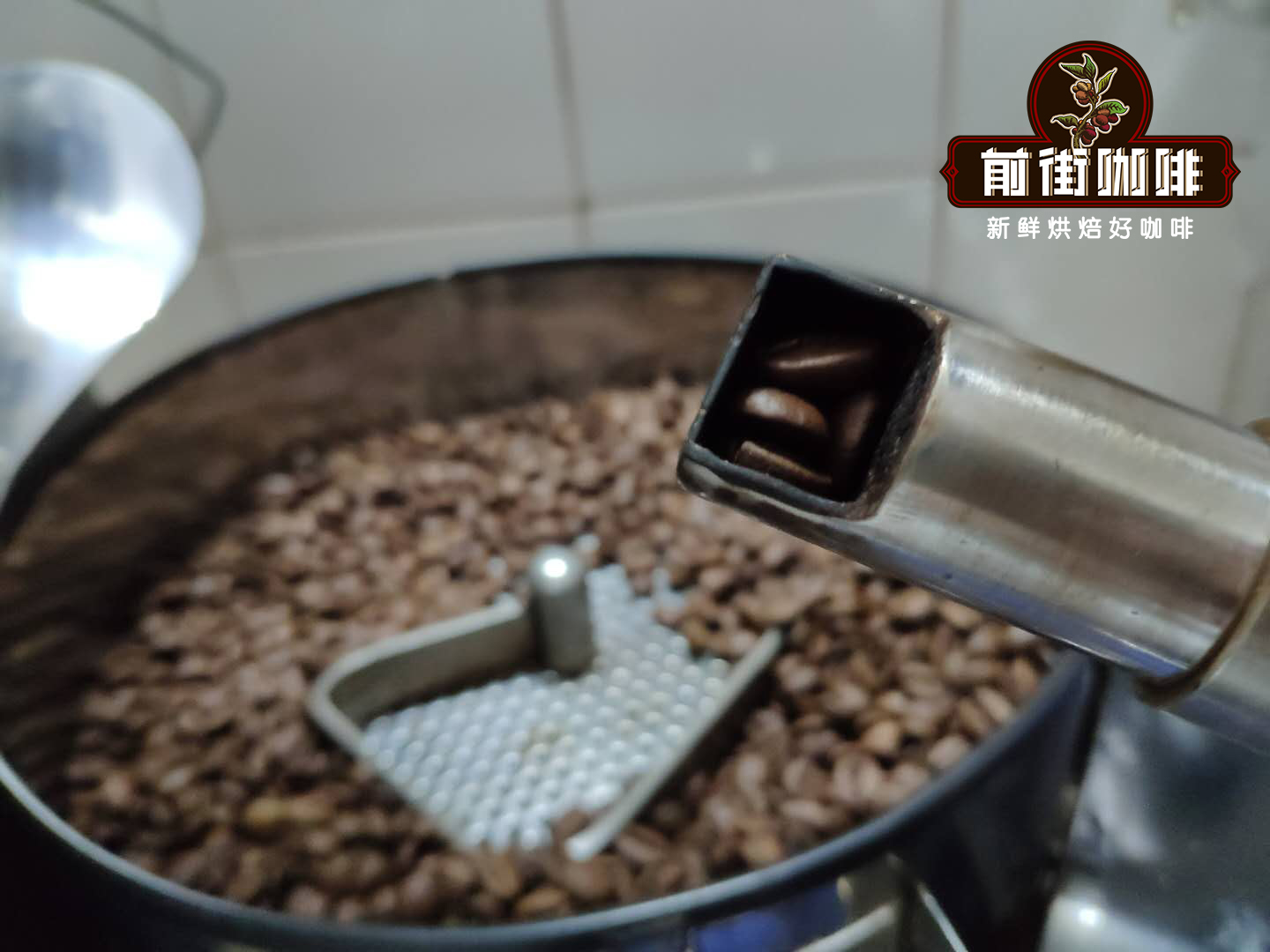
The moisture content of beans is 10.9%, so the baking plan is to put 200 degrees into the beans, then fire the small throttle to speed up dehydration, and open the stroke door and medium heat at the end of the dehydration stage so that Maillard's reaction time is not too hasty and will be released in 3 minutes. Temperature recovery point: 1 minute 32 °c, yellow point: 5 min 40 °c, 148.5 °c, first explosion: 8 minutes 59 seconds, 188.0 °c, development 3 minutes out of the furnace: 12 minutes 39 °C, 196 °C.
Suggestion on roasting Yunnan small Coffee in Qianjie
The furnace temperature is 190 ℃, the firepower is 120, and the throttle is set at 3; the temperature recovery point is 1 ", and the throttle is opened to 4 at 145℃, and the firepower remains unchanged; when the furnace temperature is 166℃, the bean watch turns yellow, the grass smell disappears completely, and enters the dehydration stage. When the furnace temperature reaches 188℃, the firepower is adjusted to 60 ℃, and the throttle is 5. The smell of toast obviously changes to the smell of coffee, which can be defined as a prelude to an explosion. At this time, it is necessary to listen clearly to the sound of the explosion point. When the sound of the explosion point begins to explode, the throttle will remain unchanged. After an explosion, the development will take place for 3 minutes, and 198 ℃ will be put into the pot.
Suggestion on brewing two Yunnan coffee beans in Qianjie Coffee
The V60 conical filter cup is recommended in the front street. V60 cup mouth is relatively large, coupled with its unique spiral curve ribs, so that the air can be discharged more easily to improve the extraction quality. The taste may not be thick enough, but its high concentration brings out the acidity and obvious aroma of Yunnan coffee is one of its major features.
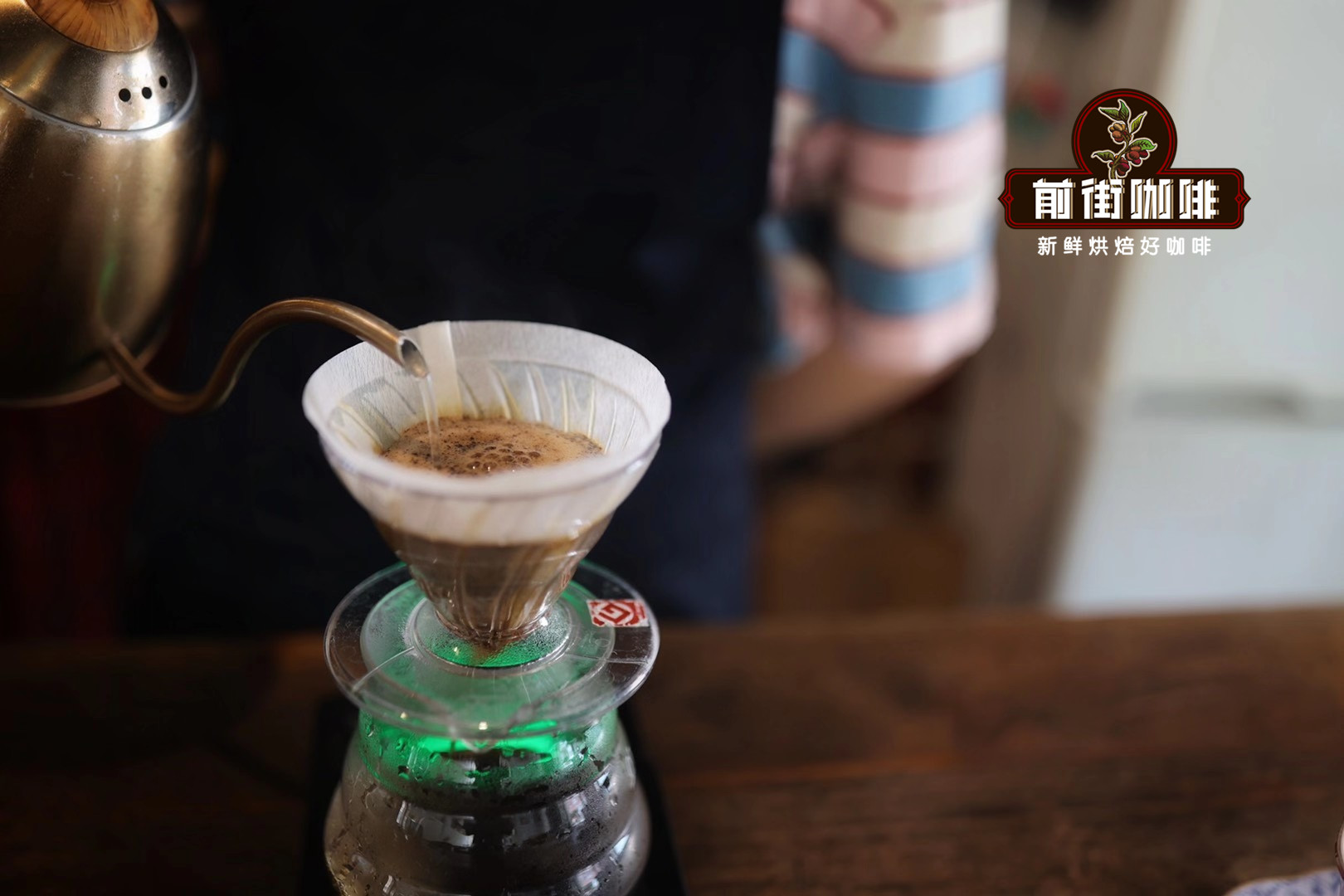
Filter cup: V60
Water temperature: 90-92 ℃
Powder / water ratio: 1:15
Degree of grinding: medium and fine grinding, that is, the thickness of fine sugar (VARIO 50: 57% pass rate of Chinese standard No. 20 screen)
Flushing and cooking technique: segmented extraction. Steam with 30 grams of water for 30 seconds, small flow circle injection to 124 grams, continue to inject water to 227 grams when the water level is about to be exposed to the powder bed, remove the filter cup when the water level is about to expose the powder bed, and the extraction time is 2 minutes.

Huaguoshan cooking flavor description: strong but not bitter, fragrant but not strong, flower fragrance, sweet melon in the middle, black tea feeling at the end.
Small coffee brewing flavor description: it smells nutty, with herbs, chocolate, caramel and a hint of acidity in the finish.
For more boutique coffee beans, please add private Qianjie coffee on Wechat. WeChat account: kaixinguoguo0925
Important Notice :
前街咖啡 FrontStreet Coffee has moved to new addredd:
FrontStreet Coffee Address: 315,Donghua East Road,GuangZhou
Tel:020 38364473
- Prev
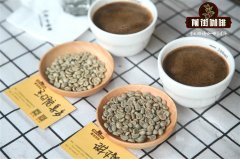
Hand-brewed coffee which tastes better, American beans or African beans?
Professional coffee knowledge exchange more coffee bean information please pay attention to the coffee workshop (Wechat official account cafe_style) [preface] like to drink sour friends, most will choose African beans, its unique geographical environment gives birth to extraordinary coffee flavor, unique flower and fruit flavor ambiguous intertwined, deeply loved. For those who like to have a balanced taste, American beans are a good choice.
- Next
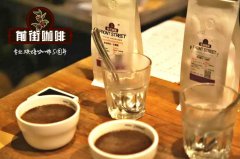
What's the difference between Starbucks Arabica coffee beans? is Arabica coffee good?
Professional coffee knowledge exchange more coffee bean information Please pay attention to the coffee workshop (Wechat official account cafe_style) unlike ordinary Arabica coffee beans, Starbucks Arabica coffee beans are grown in high-quality areas. Starbucks has always spared no effort to abide by high standards for the strict quality control of coffee beans. How do we do that? That's a good question. 1. Go to the sea first
Related
- Guji coffee producing area of Guji, Ethiopia: Humbela, Shakiso, Wulaga
- What is the most expensive variety of Qiloso in BOP multi-variety group?
- How to store the coffee beans bought home?
- Why are Yemeni coffee beans so rare now?
- Ethiopian Sidamo all Red Fruit Sun Sun Santa Vini Coffee beans
- SOE is mostly sour? What does it mean? Is it a single bean? what's the difference between it and Italian blending?
- Is Italian coffee beans suitable for making hand-brewed coffee?
- How to choose coffee beans when making cold coffee? What kind of coffee beans are suitable for making cold coffee?
- Just entered the pit to make coffee, what kind of coffee beans should be chosen?
- Can only Japan buy real Blue Mountain Coffee? What are authentic Jamaican Blue Mountain coffee beans?

